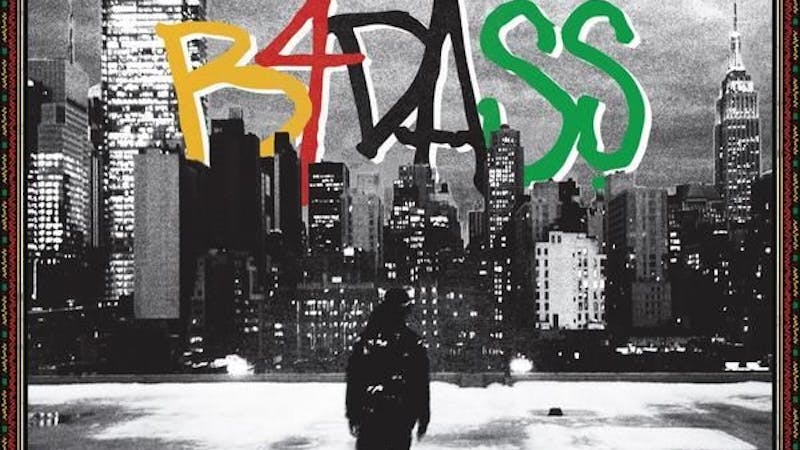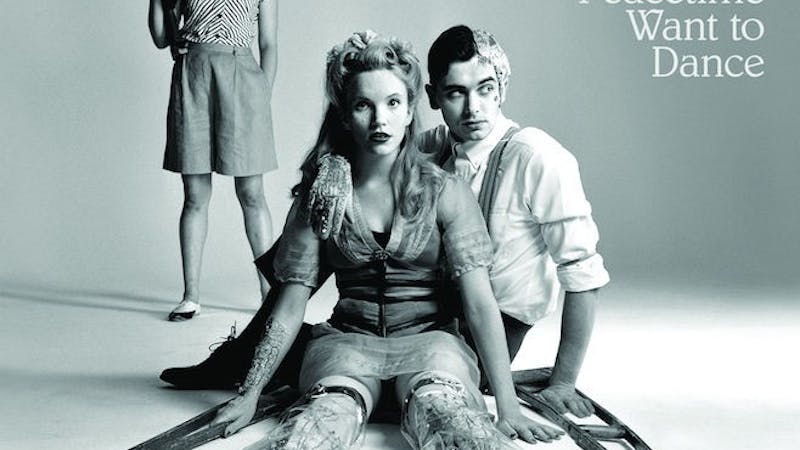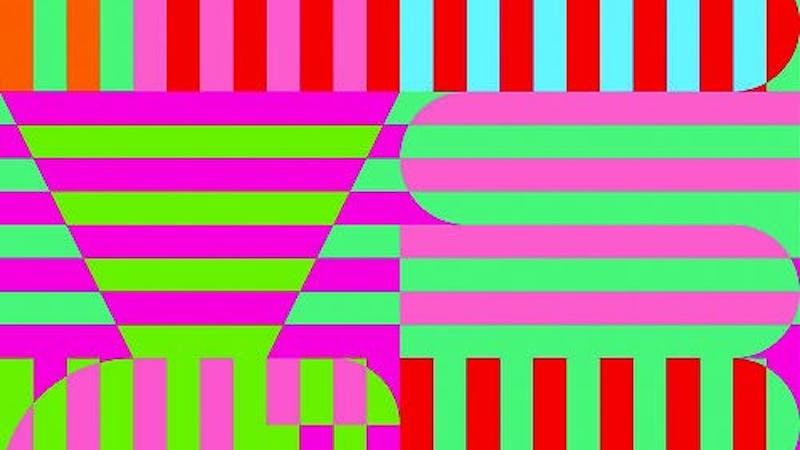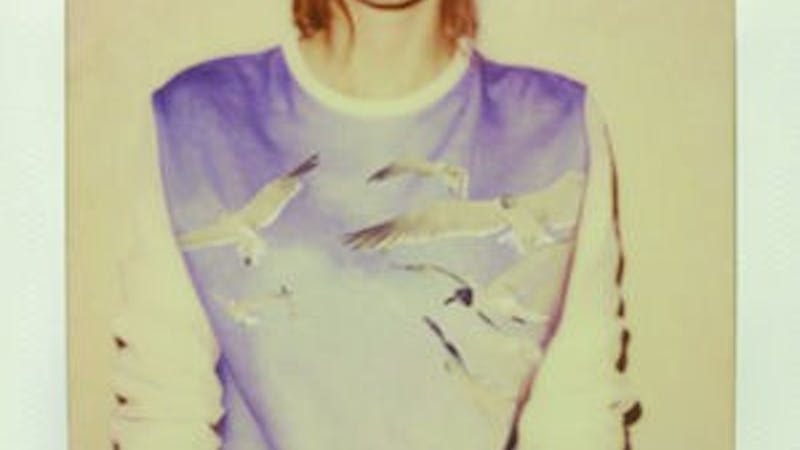
Album Review: J Tillman's I Love You, Honeybear - A-
{{tncms-asset app="editorial" id="8a5e379a-b207-11e4-94ec-1f329278fc12"}}

{{tncms-asset app="editorial" id="8a5e379a-b207-11e4-94ec-1f329278fc12"}}

{{tncms-asset app="editorial" id="9ca685f6-a708-11e4-ac16-d3c9aa5d0ce9"}}

{{tncms-asset app="editorial" id="14c91cb4-a188-11e4-b89a-2fde933a2dd9"}}

{{tncms-asset app="editorial" id="25d741bc-9c0a-11e4-86cb-773cfd582528"}}

Taylor Swift has been on the pop scene for nearly a decade, making her a staple of radio music since elementary and middle school for me and many of my peers. Her new album, 1989, is named after her birth year. That makes Swift nearly seven years older than the average Rice University freshman. But I still think of her as the seemingly perennial teenager that burst on the scene in 2006 with songs about the overwhelming emotions associated with high -school romance. And her country-tinged, guitar-rock ballads are at least partially responsible for the introduction of country into mainstream-pop radio, although her detractors will call those tunes ‘country pop’ or just ‘pop.’ To put it bluntly, 2014 Taylor Swift sounds nothing like 2006 Taylor Swift in some of the worst ways possible. Rather than expand on her sound, her current collection of synth and percussion-heavy, voice-modified pop tracks strip away any remaining uniqueness formerly present in the singer. Instead, she is relegated to the role of anonymous female pop star singing meaningless songs while her producers try in vain to craft the next Pure Heroine.Opening track “Welcome to New York” is an unevolving bit of dance pop that sounds like it could have been written for anyone. Swift’s once-distinguishable alto is synthesized into ambiguity as it shouts cringeworthy lines. Former Swift singles highlighted quirky details the singer remembered about lovers, such as “the first time when I didn’t kiss him and I should have.” But the lyrics on 1989 sound half remembered and half cliché, such as “moving the furniture to dance / like we stood a chance / two paper airplanes flying!” from second single “Out Of The Woods,” a song that tries so hard to sound anthemic it ultimately collapses.Swift was a beloved pop singer for being relatable. Rather than the cheerleader that wore “short skirts,” she wore “t-shirts” and resided “on the bleachers.” When her high school years were behind her, she managed to connect to fans of her own age with 2012’s “22” and party alongside her college-aged friends with the dubstep influenced “Trouble.” 1989 finds Swift emulating the new wave of pop stars, losing all of her originality and, subsequently, credibility and resonance. “Wildest Dreams” sounds like a cheap Lorde impression, with Swift echoing herself over spacey beats that have become a hallmark of ‘minimalist pop,’ while “I Wish You Would” includes the ’80s shotgun drums and funky guitar flange that sister-band and 2013 breakout group Haim have repopularized. In fact, if the song didn’t descend into the void of over-produced pop grandeur on the coda, it could actually pass for a Haim B-side. So how does 1989 hold up on the catchiness front? If you look no further than lead single “Shake It Off,” the answer is ‘excellently.’ I’ve heard the song making the rounds at Rice parties and pre-games since it was released, firmly ensuring the seal of approval from what I would guess is Swift’s target demographic — 19-year-old females. But for a pop album, the rest of the record is disappointingly stale. The dance tracks are repetitive and don’t find the grooves that recent pop singers like Nicki Minaj and Ariana Grande have locked into — no doubt with help from collaborations with artists like The Weeknd and Drake. The four-chord country-pop is completely absent, with an acoustic guitar failing to make an appearance until track 10. Ultimately, 1989 will be regarded as Swift’s ‘pure pop’ album on which she delved further than ever before into synth- and computer-based production. The impersonality of the songwriting and vocals are huge detractors, bringing the singer a solid step backward after eight years of incremental improvement. However, Swift’s eye for detailed lyrics still shines from time to time — the “long hair, slicked-back, white t-shirt,” the “hands in my hair, clothes in my room,” the spoken word diss on “Shake it Off” — these moments still manage to evoke the old Swift we know and love. But, unfortunately, they don’t work to put together cohesive feelings from each song, with each chorus and song title sounding like it was pumped out by some sentimental phrase generator. The end result is one song (“Shake It Off”) that will be a staple of parties and impromptu dance sessions for years and another dozen utterly forgettable pieces of 2010-era generi-pop.
In retrospect, it’s easy to label what each year sounded like in music. 1969 was psychedelic rock music; 1977 was disco; 1985 was new wave (and Bruce Springsteen); 1991 was grunge; 1999 was teen pop stars; 2012 was dubstep. It’s much more difficult to describe what the “sound of today” is. For one thing, each year brings more genre crossover than the year before it, from Taylor Swift featuring dubstep production to Avicii featuring a folk ballad. Additionally, as streaming and MP3 downloading become more and more popular, to the point where far more students listen to Spotify than the radio, popular taste becomes divergent as individuals develop keen, eclectic tastes. So that’s why listening to the excellent second album, Wonder Where We Land, by British electronic musician SBTRKT should both amaze and confound listeners; it’s composed of everything popular now but still carves out its space as an album unlike any other released this year. SBTRKT, also known as Aaron Jerome, released a couple of EPs in 2010 before dropping his self-titled debut album in 2011, bringing him to the center of the electronic music scene as well as some radio play in the form of the single “Wildfire,” featuring Little Dragon (and later remixed by Drake). That album was an up-tempo, dance-focused electronic collection heavily featuring frequent collaborator Sampha on vocals. With fast-paced, vocal-heavy tracks, it arrived perfectly at the center of a summer full of electronic pop music dominated by Rihanna, David Guetta and Calvin Harris.In the three years since then, we’ve seen a delicate movement toward slower, more abstract, R&B-focused projects. Newcomers James Blake and Frank Ocean rewrote the book on what R&B could sound like and what stories it could tell, while pop musicians and rappers alike made a collective move toward the smoother, slower, sultrier side of music (see Drake, Lorde and Pharrell, who were featured everywhere). SBTRKT’s new album is an exercise in electronic abstraction. It is most certainly not a dancey album, the trait that made his debut so irresistible to begin with. Such a drastic change in style could spell doom for many musicians, but luckily SBTRKT has moved in the exact direction the rest of the world has.The opener and title track “Wonder Where We Land” features Sampha once again, but rather than pitting him against a flurry of breakbeats, he is instead backed by sparse bass notes and bright piano chords before a flurry of falsetto voices, sped up and played backwards, breaking the minimalism of the song wide open. “Higher” features rapping by Raury and is chock full of lush synth production, but the slow boom-bap of the bass and snare never breaks tempo, with SBTRKT instead choosing to increase volume on the high-pitched, scream-like synths, creating the song’s climax. The track also features descriptive lyrics with clever wordplay, a treat in the oft-overlooked lyric sheet of the electronic music genre: “Use a fake ID to buy some cigarettes from the bodega / ate a pack of bad karma didn’t pay for now and laters / but my life is full of sufferings that happen now and later.”“Look Away” combines all the tricks of the modern sample-heavy electronic game, with soaring, zithering theremin-like synths, blaring siren horns, backwards drums and haunting, tinkling pianos all graced by the soprano vocals of Caroline Polachek. All this building and climaxing in the first half of the album leads to an unexpected drop in energy on the standout track “New Dorp. New York.” Featuring Vampire Weekend’s Ezra Koenig on vocals, this is a song with a distinctive theme and story to tell, that being old money in the neo-gothic New York City, with Koenig’s smooth delivery perfectly enunciating playful alliterations and assonance in lines like “Flags flappin’ in Manhattan” and “Gargoyles garglin’ oil.” The downtempo track, nearly all drum and shaker, stands against the lavish production found throughout the album and serves as a breakthrough in style for SBTRKT.Other highlights include the emotion-drenched piano and vocal crooner “If It Happens,” as well as the intriguing closing track “Voices In My Head,” which takes a dark, noir jazz band through the electronic washing machine into the future and features notable New York rapper A$AP Ferg as he eerily brings the song to coda with the repetition of “Voices in my head, voices in my head.” The dense texture of the tracklist and numerous guest vocalists (including Jessie Ware, among others) make this an album ripe for repeated listening. While nearly none of the songs are simple, the mood is: swanky R&B brought to life with spooky synths, either very high or low in the register, and spacious, unpredictable rhythmic patterns. That SBTRKT was able to take components from all faces of current pop music and still create something that sounds both surprising and infective is a testament to his ability not just as a DJ and producer, but as a songwriter.

The sophomore album from a young, successful band is often the most important to their career arc and for good reason: The sophomore slump is a very real thing. Countless upstart indie bands, from MGMT to The Strokes to The xx, have received some degree of critical backlash for their second LPs, typically because they either changed nothing about their formula or they changed it too much. This is the stage set for alt-J, the Leeds-based folk and electronic crossover band that came out of nowhere in 2012 to win the Mercury Prize, the award given to best British LP of the year, for their debut album An Awesome Wave. alt-J made a name for themselves by playing a style of music that sounded completely alien despite being made up of familiar parts. The signature, unmistakable singing style of Joe Newman sits as the dynamic manifestation of the band’s sound. The drums, heavily reliant on floor toms, give the songs their consistent tribal feel. The synth parts, all worked out on Korgs and Mac applications, loop strange, buzzing tones together in strange rhythmic patterns. The lilting guitar lines sound like mandolins played by traveling minstrels. All of this combines to make alt-J’s music sound like it is decidedly not of this century, and it certainly struck a chord with listeners. Like them or hate them, there is no confusing alt-J for any other band. The row-your-boat style round-singing on their most well-known track, “Breezeblocks,” was one of the biggest moments of 2012 in music and sealed alt-J as an eclectic act and a band to watch. So how does sophomore record This Is All Yours stack up? Pretty well, actually. Like on An Awesome Wave, we begin with a largely instrumental intro, featuring ‘LaLaLa’ nonsensical singing. “Arrival in Nara” pits a solemn piano and subtle string arrangements against Newman’s softly cooing voice. “Nara” is classic alt-J, starting soft with slowly buildingdrum and synth parts, high ethereal harmonies rising from the back like a church choir into a crashing, anthemic breakdown. None of these tracks would have been out of place on An Awesome Wave.Then we get to fifth track, “Left Hand Free.” Reportedly written as a joke in response to the age old record-company-asking-for-a-catchy-marketable-single story, we get very traditional drumming, funky, bluesy electric guitar riffs, silly lyrics about picking up a girl in a bar (‘O-M-G gee whiz girl you’re the one for me’), and gimmicky horn and keyboard parts reminiscent of The Doors. In short, it sounds nothing like any other alt-J track. It is also one of the strongest songs on the album. Sharply turning away from their traditional style, making a goofy troll-song, these guys have managed to put together a catchy, inventive take on an American brand of music better than just about anyone else has this year. That’s because alt-J’s most common pitfall is attempting to be taken too seriously. Newman’s lyrics are difficult to discern, to say the least, a combination of his strange delivery style as well as his choice of words and syntax, but after consulting the lyrics sheet, we learn the songs are really about nothing. They work better as parodies of the nerdier Led Zeppelin songs, spinning medieval themes into electronic arrangements. There is no deep emotional catharsis, no political stance, no inventive storytelling. alt-J could take a lesson from fellow European weirdos Sigur Ros and sing in a made up language, and nothing about the band or why they are liked would change. So when they say the content of this song is a joke, it implies the other songs are supposed to be solemn, sobering affairs. But how seriously can one take lead single “Hunger Of The Pine,” which prominently features a Miley Cyrus sample (shouting ‘I’m a female rebel!’) alongside deeply wound, ultimately substanceless metaphorical lyrics like ‘Bedding with me you see at night / Your heart wears knight armour’? alt-J is a band about textures. They layer vocal harmonies better than anyone else out there, and they’ve managed to be coined by critics as a ‘folk’ act despite featuring synthesizers as their main instrument. But they are not a lyrics band. That isn’t to say the listener cannot feel deeply when listening to alt-J music, but it comes rather from the beauty of the arrangements.This Is All Yours is a consistent release with occasional high points. The female back-and-forth vocals on “Warm Foothills” are marvelous, the perfect center to a song that showcases numerous alt-J talents. The starkness of acoustic strummer “Pusher” makes you wish the group did more minimalism and held back on the over-produced, complex-to-a-fault tracks like “The Gospel of John Hurt.” Other moments are equally annoying, but they are few between an hour’s worth of typical alt-J fare, which is still pretty interesting music these days. The group certainly dodged the sophomore slump, but it’s unlikely the same formula will be as effective on a third LP. “Left Hand Free” suggests the group can maintain their identity while pushing the boundaries into other genres. So long as they don’t take themselves too seriously, I think we’ve got a lot to look forward to.